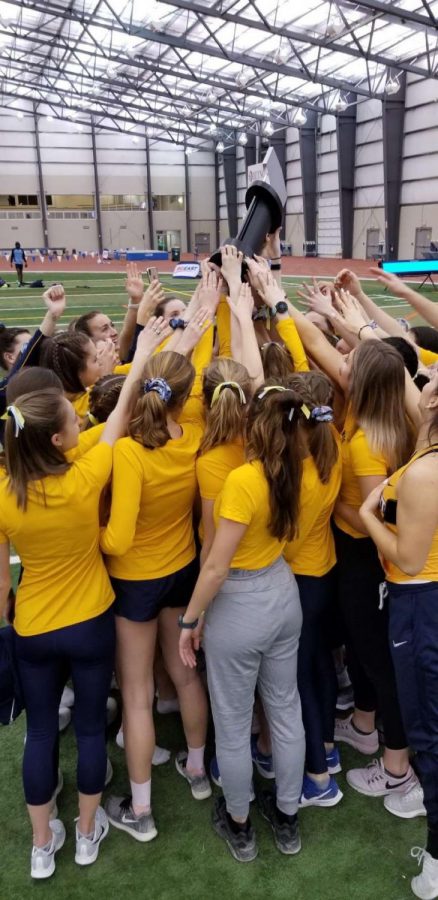Column: Need for Unity in the NCAA
December 23, 2020
College athletics, like many other facets of current life, have been extremely hindered by COVID-19. Throughout the NCAA, sports programs are being cut to cope with the damaging effects COVID-19 has had on funds. The Associated Press reports that 51 D1, 56 D2, and 52 D3 sports programs have been cut from their respective schools. Throughout the struggle, some schools have managed to keep playing while others unjustifiably sit on the sidelines. The NCAA, and schools within the NCAA, have been making decisions more sporadically than COVID-19 itself.
College athletes and coaches need unity from the NCAA and schools within the NCAA.
FBS Division 1 football schools have been given the chance to salvage seasons, but from the outside looking in, there is no sense of balance or structure. All conference championship games were played this past weekend regardless of how many games were played. ESPN reports that the champion of the Southeastern Conference, The University of Alabama, has a record of 11-0, while the Big Ten champion, Ohio State, only has a record of 6-0. The University of Washington has been widely considered to be one of the better teams in the nation, going undefeated in regular season play, qualified for the Pacific-12 Conference championship. After suffering a COVID-19 outbreak, the NCAA refused to reschedule the game, and instead, the 4-2 University of Oregon took Washington’s spot, according to ESPN. As the NCAA has rescheduled many regular-season games thus far, its refusal to reschedule the Pacific-12 game is exceedingly unjust. Athletes would benefit far greater if the NCAA put more effort into getting teams the same amount of games as opposed to crowning illegitimate conference champions.
Though many people are content with just having college football games to watch, many athletes have suffered because of the NCAA’s indecisiveness, and just playing games does not remedy that. According to The Athletic, over 140 D1 college football players opted out of the season over health concerns or to pursue a professional career. It is safe to say that few programs are playing at full strength and it is not any easier on the athletes. The NCAA gave all athletes an extra year of eligibility, but in many ways, this only creates more problems. According to Marin McClowry, a senior on Marquette University’s track and field team, becauseof athletes being given an extra year of eligibility, incoming freshmen will have significantly less scholarship money.
That’s only the tip of the iceberg for programs like Marquette, as the indoor track and field season for all teams in the Big East Conference has been canceled. Meanwhile, Big East basketball has continued playing, a baffling revelation when fans consider basketball as a sport is considered a much higher COVID-19 risk than track and field, as reported by Hartford HealthCare. This acknowledgment picks apart the argument that cancelations are solely to protect against COVID-19. If safety was truly the number one priority, all indoor sports would be canceled.
The NCAA needs to unify its schools and make decisions that put athletes first. The clock is ticking as schools continue to withstand COVID-19, and they need support rather than uncertainty from the NCAA.



Chase Hanselman • Mar 13, 2021 at 4:22 PM
I really like how you concluded this Column. By saying: “The Clock is Ticking”, it really puts an emphasis on the severity of this issue and how important it is for it to be resolved as soon as possible. Throughout this article I feel you did a great job providing reliable sources to back your information such as first hand experiences from your sister.
Natalie McNeely • Mar 12, 2021 at 11:13 AM
I think this is a really good point, and I agree that colleges should be focusing on unity vs what sport is most popular.